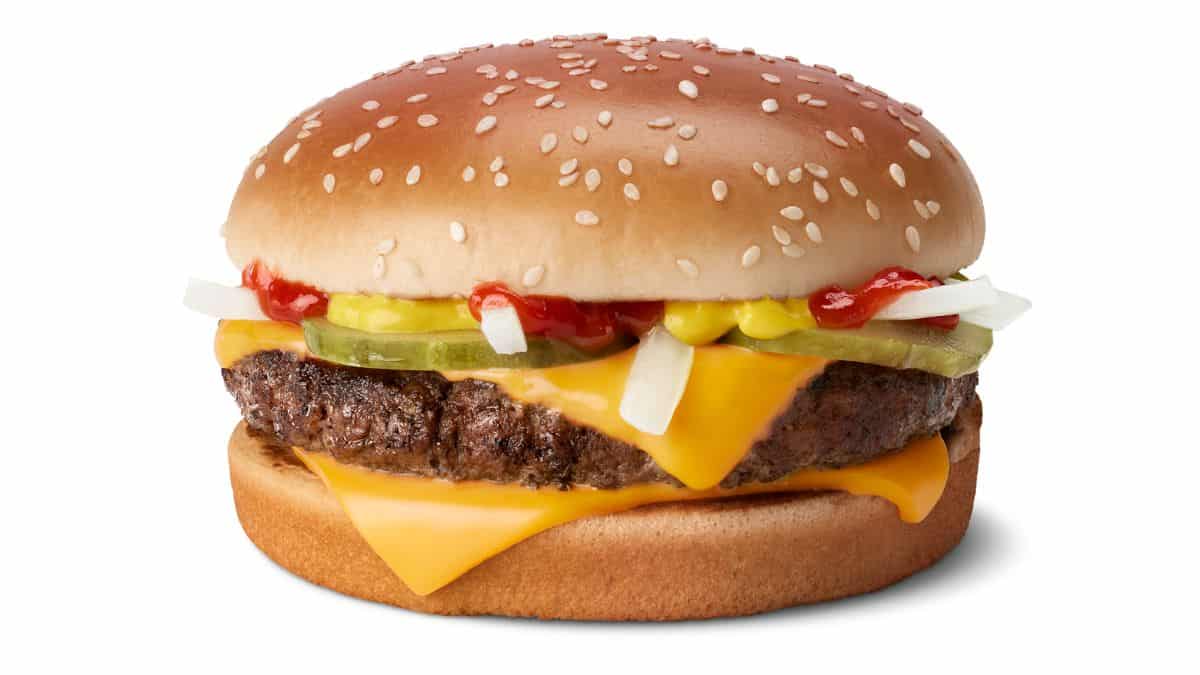1. What We Know About the Outbreak
The U.S. Centers for Disease Control and Prevention (CDC) has confirmed that 49 people across 10 states have fallen ill after consuming McDonald’s Quarter Pounders. Of these, 10 people have been hospitalized, and one person has died as a result of the outbreak. Most cases are concentrated in Colorado and Nebraska, but other states, including Iowa, Utah, and Wisconsin, are also affected.
The outbreak is believed to be caused by E. coli contamination, but the exact source of the contamination is still under investigation. Both the fresh slivered onions and the beef patties used in the Quarter Pounders are the main suspects. McDonald’s has taken precautionary measures, removing these ingredients from stores in affected states, including Colorado, Kansas, and Utah.
ALSO READ. When is the release date of McDonald’s Chicken Big Mac, the most anticipated burger
2. The Impact of E. coli
E. coli is a type of bacteria commonly found in the environment, but certain strains, like the one linked to this outbreak, can cause severe illness. Symptoms typically begin three to four days after consuming contaminated food and include severe stomach cramps, diarrhea (often bloody), and vomiting. While most people recover without treatment, some may experience life-threatening complications, such as hemolytic uremic syndrome (HUS), which can lead to kidney failure.
In this outbreak, a child has developed HUS and is currently hospitalized. Seniors, young children, and people with weakened immune systems are at higher risk of severe outcomes from E. coli infections. The CDC urges anyone experiencing severe symptoms, especially after eating a McDonald’s Quarter Pounder, to seek medical attention immediately.
3. McDonald’s Response and Temporary Menu Changes
McDonald’s has acted swiftly in response to the outbreak, temporarily removing Quarter Pounders from its menus in several states. According to McDonald’s USA President Joe Erlinger, the company has already withdrawn the potentially contaminated beef patties and slivered onions from the supply chain. In his statement, Erlinger emphasized that McDonald’s is committed to customer safety and has implemented stringent food safety measures, such as daily temperature checks and hourly handwashing for employees.
Despite these measures, Erlinger acknowledged that the number of cases could rise as the investigation unfolds, as more instances of illness may be genetically linked to the outbreak strain of E. coli.
McDonald’s has temporarily removed the Quarter Pounder from restaurants across multiple states, including Colorado, Kansas, and Wyoming. The company is working closely with suppliers to replenish Quarter Pounder ingredients in the coming weeks. Other menu items, such as the Cheeseburger, Big Mac, and McDouble, remain unaffected and are still available for customers. McDonald’s continues to collaborate with the CDC and has promised timely updates as they work to restore their full menu offerings.
4. The CDC’s Ongoing Investigation
The CDC and the U.S. Food and Drug Administration (FDA) are conducting a fast-moving investigation into the outbreak. The onset of illnesses tied to McDonald’s Quarter Pounders has been traced back to late September, and new cases are expected to emerge as more information comes to light.
While outbreaks like this can often be contained quickly once the source is removed, the process requires a comprehensive investigation to ensure all contaminated products are identified and removed from circulation. The CDC is working closely with McDonald’s to track the supply chain and prevent further spread of the bacteria.
5. Protecting Yourself from E. coli
Consumers are advised to be vigilant and seek medical care if they experience severe symptoms after eating a McDonald’s Quarter Pounder. In particular, those with high fever, prolonged diarrhea, vomiting, or signs of dehydration should consult a doctor immediately. Symptoms like bloody diarrhea or diarrhea lasting more than three days are especially concerning and warrant prompt medical attention.
In the meantime, McDonald’s is reassuring customers that the rest of its menu remains safe to enjoy, as other beef patties and diced onions used in different sandwiches have not been linked to the outbreak. Nevertheless, foodborne illness remains a growing concern in the U.S., with E. coli infections increasing by 25% over the last five years, according to CDC data.











